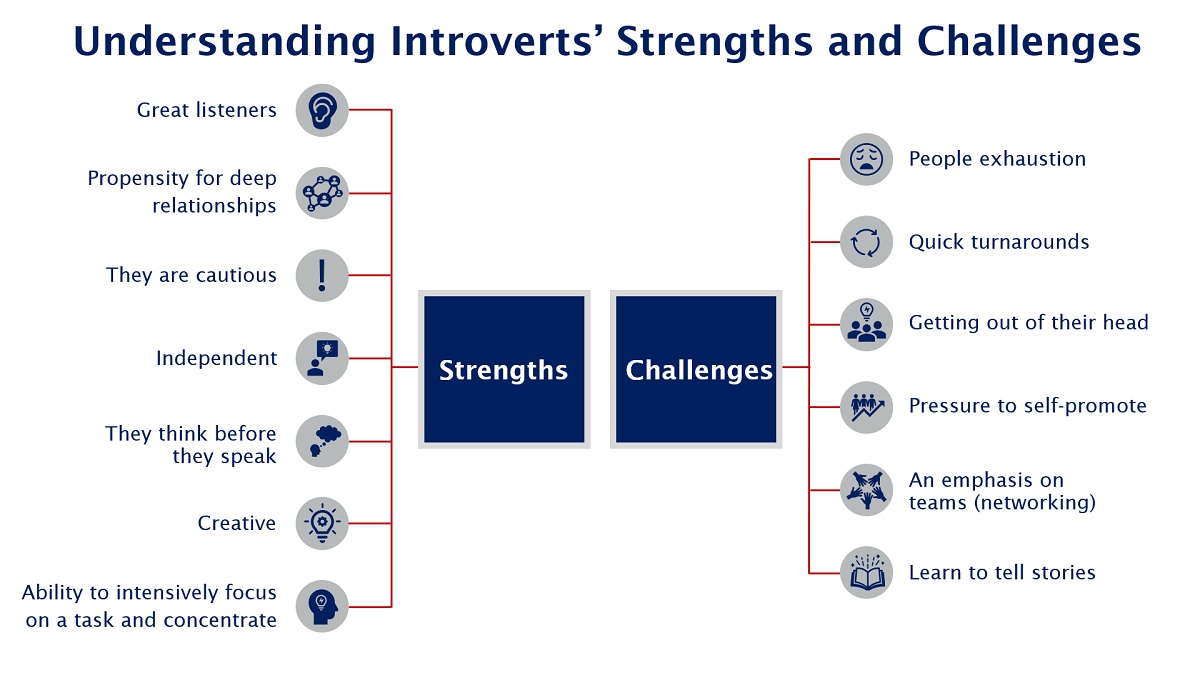This article delves into how the skills Finance Business Partners need to thrive as business collaborators...

The role of a great Business Partner is not just about collaboration; it's a powerful catalyst for personal and professional growth. It can be the key to staying with the company, getting noticed or promoted, and growing with other Business Partners as they grow. They can be your strongest advocate and your support system on your professional journey alongside your manager(s).
We were all either joining a new company, moving to another team, or being tasked with relocating and taking on more significant responsibilities.
Situations like this have one thing in common – you will have new Business Partners to work with unless old colleagues move into the same organisation with you.
According to the famous personality profile questionnaire by Myers-Briggs, the finance industry is predominantly populated by introverts rather than extroverts. So, many successful finance professionals share the same introverted traits!
Introversion comes from the Latin “Intro” – to and “Vertere” – turn. Extraversion and introversion are the central traits in the human personality theory introduced by Carl Jung.
Introverts are typically reserved or quiet people who enjoy spending time alone. In a business environment, it can pose challenges such as the need for quiet to concentrate, the preference for writing over speaking, and the tendency to take time to make decisions. All introverted finance professionals share these common traits.
However, many successful finance leaders are introverts, so how do they do that? They might have used their strengths to achieve that while being open to new adventures from extroverts.
In this article, we will focus on these strengths and dive deep into how we can establish successful business partnerships across organisations with the right approach and good strategies.
Understanding Introverts Strengths and Challenges

Figure 1
We won’t discuss them in detail, but understanding them is essential so that introverts know what to work on and extroverts understand introverts’ challenges.
Preparation and Research (Independence/Creativity)
Even if you are new in a company, there will be things that you don’t have experience with. Show your attitude and willingness to learn. It starts before you even join a new company.
We can learn so much from external resources. If you are an aspiring or seasoned FP&A professional, you can learn many interesting facts from public information. If you plan to join a company that reports financial statements publicly, get it and scrutinise it in every detail. Apply all the knowledge you learned in school or your previous company and read annual reports, footnotes and news. You can compile an excellent profile of any company even before being hired.
When you come to the interviews, you are knowledgeable and have your own specially crafted reports and opinions. Moreover, you will come across some questions you may ask during the interview. That’s exactly where the relationship starts to be built, which you don’t even realise. The company's leaders see in front of themselves someone prepared and proactive. They see a person who comes prepared, is not afraid to ask proper and relevant questions, and puts effort into coming to the interviews. Business leaders see someone already aware of how to prepare for the interview. You did that because you wanted to be ready for dialogue, have an opinion, and make a qualified decision to join or not to join the company. I have seen many examples of aspiring finance professionals coming to interviews unprepared, who didn’t know the company's financials, were not asking profound questions, and didn’t project any interest in being hired by a company despite their words sounding different.
Building Relationships
Now, let’s get back to a situation where you are already in the company. How can you build relationships with others? Focus on what you can do best. Introverts are usually great at independence, creativity, listening, and deep focus. Use these essential strengths to your advantage.
Trust
It is an essential ingredient for successful Business Partnering. Without trust, nobody will listen to you and seek your expertise, opinion, and advice. Trust must be carefully built across your network, including peers, managers, leaders, or other Business Partners. It is a long, delightful, iterative, and worthwhile process. The feeling that you are being asked to give an opinion and advice and that without you, the “approval” path would not be complete is gratifying. You need to bring value to the relationship to make it happen. The four elements mentioned above should help you tremendously, especially when you are a natural introvert.
Listening
When absorbing new knowledge, listen a lot and record handovers to return to it whenever needed. These days, you can use Zoom/Teams to record a handover/learning meeting. As the famous Greek philosopher Epictetus said, “We have two ears and one mouth so that we can listen twice as much as we speak.” By listening, you focus on what and how others are telling you, which helps us understand those we listen to. Listening attentively lets you catch things between the lines that you may not see clearly in the numbers. You can also spot things that look “green” on the paper while their core is not working correctly. Sometimes, we call them “watermelon metrics”, as from the outside, they look green, but inside they are red.
“Quiet people have the loudest minds”
Stephen Hawking
Another advantage of good listeners is that others will enjoy speaking with you. They will open up for more as you are building trust. Ultimately, others will be more open to your point of view when you speak.
Listening can help you build your vocabulary for FP&A Storytelling, which is an essential skill for any FP&A professional. A quality, professional, business-flavoured, and down-to-point voice-over to your charts, numbers, and tables is a very sought-after skill for you to have.
Furthermore, you can keep your cards close to your chest; some conversations you encounter can be pretty challenging. You may disagree with others' viewpoints, but you can dig deeper into the mindset of others instead of going directly into an open conflict.
Independence
Don’t wait for someone to tell you precisely what needs to be done. You, as an introvert, should know that! We are great at self-drive and motivation. We are always willing to learn new things. At this point in your life, you have probably read many good books, articles, or analyses that should inspire you to test them in real life. You, as someone new to an organisation or a company, have an advantage, and you should think outside of normal boundaries or expectations. You are there to see what others can’t because of bias, traditions, and company culture. You are not limited to pre-existing knowledge or assumptions, but you can develop creative ideas, connections, and stories others may be able to think of.
“I am rarely bored alone; I am often bored in groups and crowds”
Laurie Helgoe
And so, here comes the creativity…
Creativity
Merge your learned knowledge with the data you have at hand. Don’t say that you have no data, as you can’t find an organisation that does not have data. Now, when you have your data and the verbal knowledge (voice-over) from SMEs, Business Partners, and team members, start to form opinions and your hypothesis. Form creative connections that you can present in new sets of analytics, visuals, and charts that nobody thought about before. This process is iterative, and it involves testing and trying. However, the effort is worthwhile and fulfilling. Some people think that creativity is intelligence and having fun, while others believe imagination rules the world!
Deep focus/thinking
We must immerse ourselves in the situation we are dealing with to make a good output. We need an escape. As Pablo Picasso said, "No serious work is possible without great solitude.” Recently, I read a book called “Essentialism” by Greg McKeown, where he states that we need to escape to discern the essential few insights from trivial many. Unfortunately, we don’t get that space by default in our time-starved period. We can only get it by design. He further suggests that after we design a space for thinking, we build a space to concentrate on what’s important. Introverts love it, and they thrive in it. Once you entirely focus on the task, the outcomes or solutions come faster.
Now, I am coming back to building relationships. When preparing for your first, second, or X meeting, do your homework, formulate a hypothesis, jot down questions you can’t answer by looking at the data as you need further business context, and then come to the meeting. Before asking the first set of questions, show and tell what you have done so far. Articulate your hypothesis to demonstrate that you care about the other person(s) and value their time so that you are not asking basic questions. Questions can be answered by looking into the data and doing homework.
“Focus on the outcome, not the obstacle.”
When a Business Partner asks you to do “A,” don’t just do “A.” Bring him “B” and “C” too, as they did not think about possible alternatives, obstacles, or opportunities. While these alternatives can be discarded in the end, it still shows that you have read between the lines, and if you were in their shoes, you would like to know this before making a decision.
Conclusion
Even though many finance professionals think they are starting their Business Partnering journey at a slight disadvantage, that is not true. Introverts have many traits that extroverts would like to have. So don’t forget to build on your strengths and venture into the exciting world of Business Partnering.
Subscribe to
FP&A Trends Digest

We will regularly update you on the latest trends and developments in FP&A. Take the opportunity to have articles written by finance thought leaders delivered directly to your inbox; watch compelling webinars; connect with like-minded professionals; and become a part of our global community.







